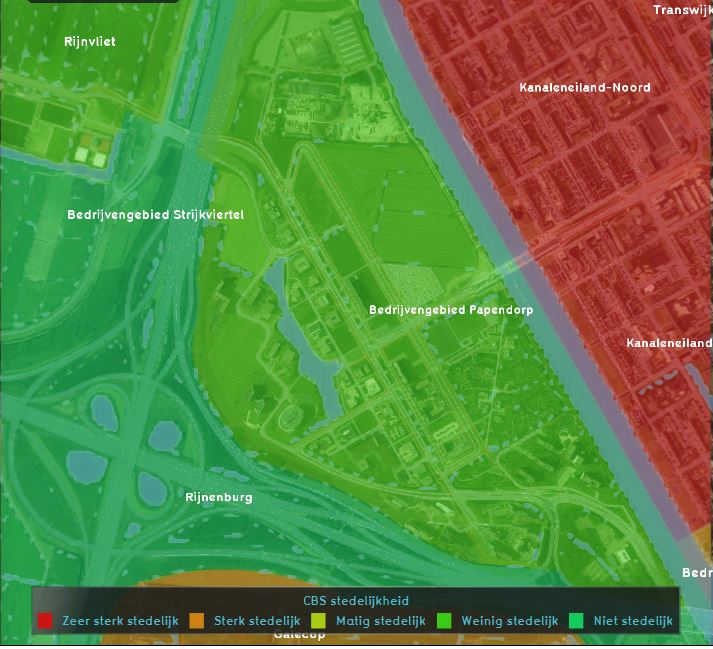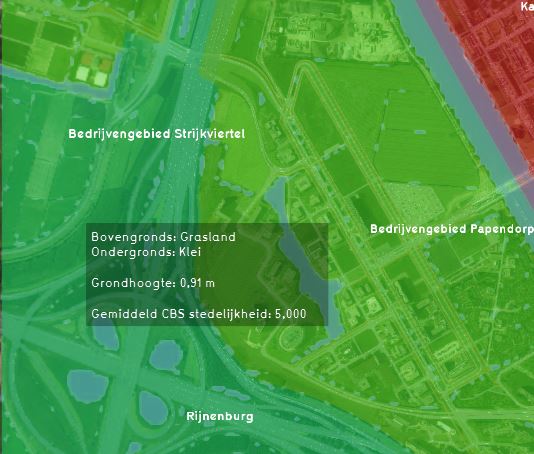Average Overlay: Difference between revisions
No edit summary |
No edit summary |
||
| Line 1: | Line 1: | ||
[[File:Average_overlay_example.JPG|thumb|250px|left|The Average Overlay of the urbanization attribute.]] | [[File:Average_overlay_example.JPG|thumb|250px|left|The Average Overlay of the urbanization attribute.]] | ||
The Average [[Grid overlay| | The Average Overlay is a multi purpose [[Grid overlay|Grid Overlay]] which displays (smoothed) values. These values can originate from 2D spatial objects, such as buildings, terrains, areas or neighborhoods. The values can also originate from an other [[Grid Overlay]]. | ||
Another typical use-case of the Average Overlay is to visualize parameters of a simulation model (e.g. the [[Rainfall _(Overlay)|rainfall overlay]]). A parameter assigned to a grid-cell can be related to one or more layers of the 3D model: [[Constructions|Buildings]], [[Address|Addresses]], [[Terrains]], [[Areas]], [[Neighborhoods]] and [[Net Lines]]. | Another typical use-case of the Average Overlay is to visualize parameters of a simulation model (e.g. the [[Rainfall _(Overlay)|rainfall overlay]]). A parameter assigned to a grid-cell can be related to one or more layers of the 3D model: [[Constructions|Buildings]], [[Address|Addresses]], [[Terrains]], [[Areas]], [[Neighborhoods]] and [[Net Lines]]. | ||
Thirdly the Average overlay supports replacing {{nodata}} values with interpolated non {{nodata}} values using surrounding cells within a specified distance. | |||
{{clear}} | {{clear}} | ||
Revision as of 12:39, 19 January 2022

The Average Overlay is a multi purpose Grid Overlay which displays (smoothed) values. These values can originate from 2D spatial objects, such as buildings, terrains, areas or neighborhoods. The values can also originate from an other Grid Overlay.
Another typical use-case of the Average Overlay is to visualize parameters of a simulation model (e.g. the rainfall overlay). A parameter assigned to a grid-cell can be related to one or more layers of the 3D model: Buildings, Addresses, Terrains, Areas, Neighborhoods and Net Lines.
Thirdly the Average overlay supports replacing NO_DATA values with interpolated non NO_DATA values using surrounding cells within a specified distance.
Additional information displayed in hover panel

When clicking on a specific location in the map of the Average Overlay, the hover panel gives additional information over the actual value in that specific grid cell.
Input Overlay
Input Overlays are spatial average overlays that supply additional insights in the data used for complex Overlay models (e.g the Water Overlay or Heat Stress Overlay). Input Overlays can be made visible in the 3D model by selecting them in the Wizard or adding them manually.
How-to's
Related links
Extended Combo and average overlay functionalities.